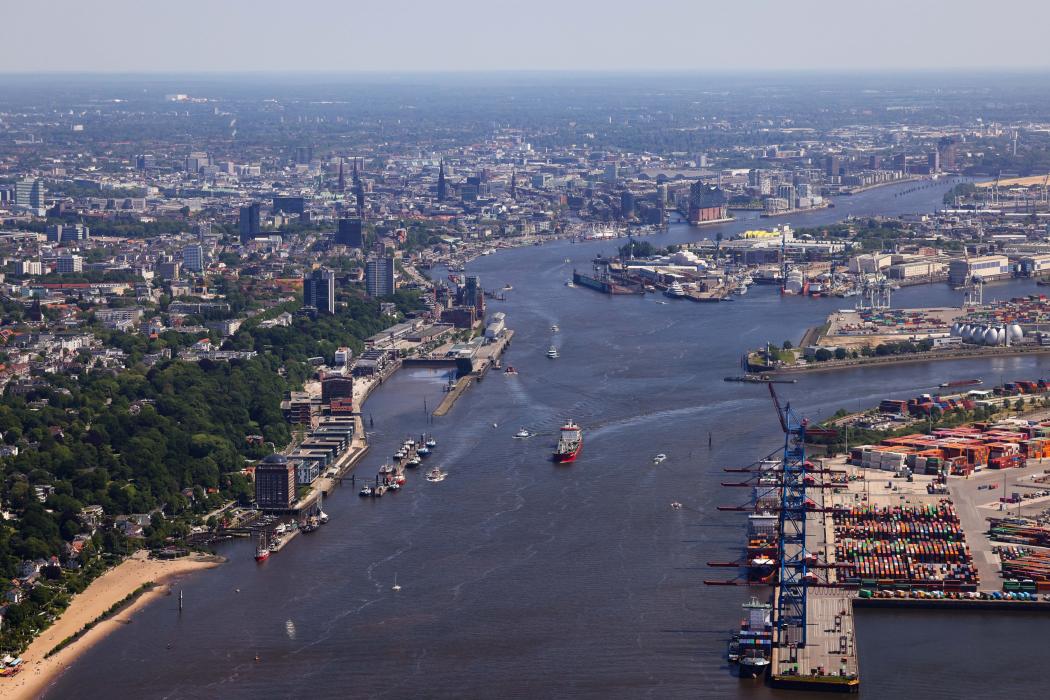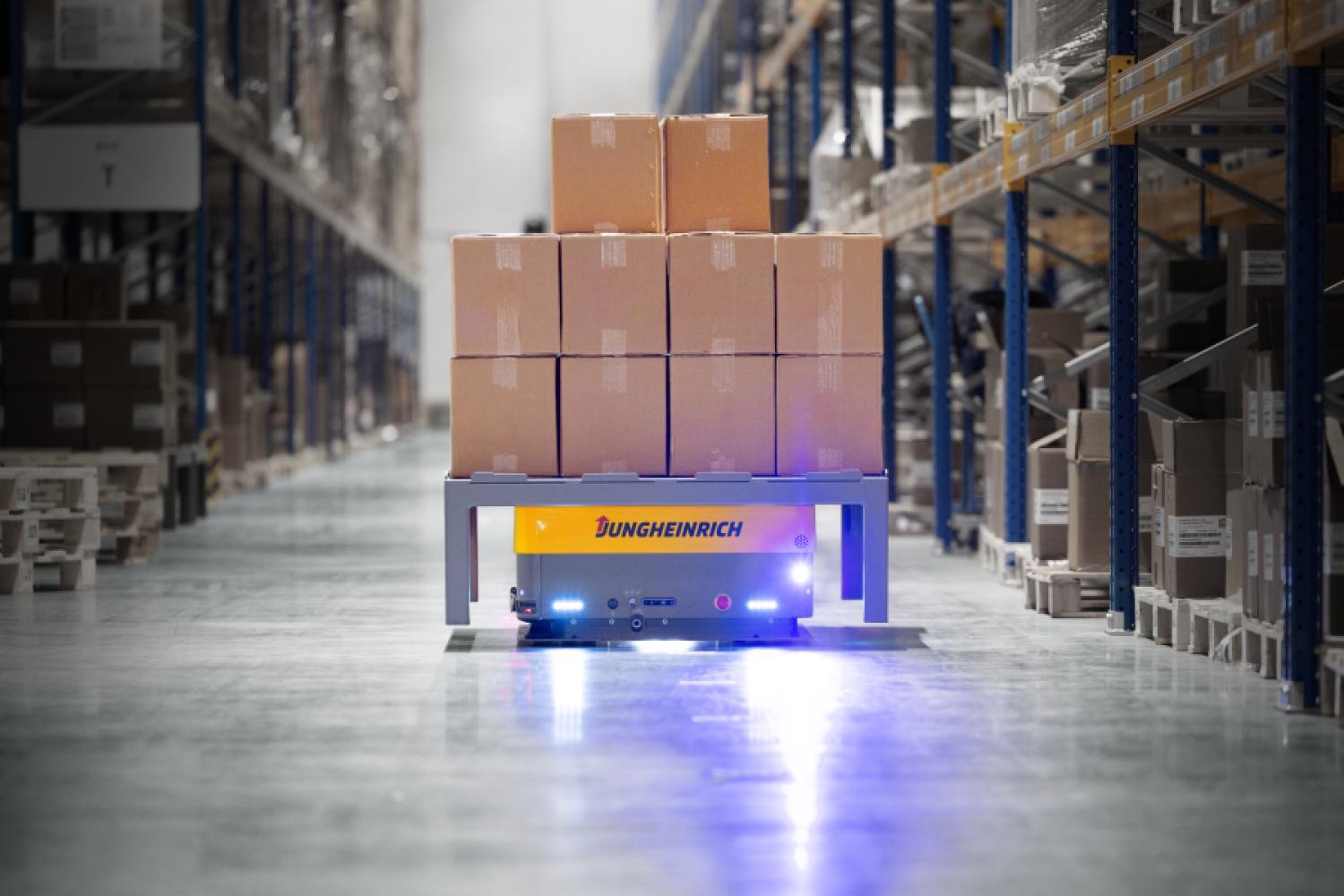The negative trend of the Port of Hamburg continues. For the third consecutive year, the sea freight handling of Germany's most important port has declined, as indicated by figures from the Hafen Hamburg Marketing (HHM) association. Accordingly, the total handling last year was 111.8 million tons. Compared to the previous year, this represents a decrease of 2.1 percent.
“Of course, it is the global economic situation and naturally the lack of economic growth in Germany,” said the deputy chairman of HHM's supervisory board, Friedrich Stuhrmann, regarding reasons for the development. Stuhrmann referred to trade figures: according to the Federal Statistical Office, Germany's goods exports in 2024 fell by 1.2 percent compared to the previous year, and imports by three percent.
Another reason for the declining throughput, according to Stuhrmann, is the connection of the Port of Hamburg to the countries of Eastern Europe. Supply chains are disrupted there due to the war in Ukraine. “We still feel this when we talk about handling figures.”
Less coal import
HHM board member Axel Mattern said that especially the business with the so-called bulk cargo suffered from the poor economic situation. Bulk cargo refers to raw materials such as coal (solid) and crude oil (liquid), which do not need to be sorted or packaged for transport. The handling of bulk cargo in Hamburg was 33.1 million tons, 8.6 percent below the previous year's value.
Apart from the economy, the energy transition is influencing the handling of bulk cargo, HHM stated. Accordingly, coal imports decreased by 2.1 percent to 3.8 million tons compared to the previous year. The import of unspecified mineral oil products fell by 21.7 percent to 5.7 million tons.
Port of Hamburg Marketing expects that the handling of fossil fuels will also decrease in the coming years. The business should be replaced by handling hydrogen and its derivatives in the future. Among other things, Hamburg energy importer Mabanaft plans to bring ammonia and methanol to Germany via the port in the coming years.
China remains important
The port recorded a slight increase in container handling. With 7.8 million standard containers, 0.9 percent more were handled than in 2023. HHM explained the slight increase partly with the trust of shippers in the port.
The port's most important trading partner remained China (2.2 million standard containers). The United States followed (685,000 containers). Mattern said he expected China to remain the port's most important trading partner. The United States is under observation due to tariff announcements. “As a port, we can only really look at it and see how these handling activities develop at the end of the day,” Mattern said.
Handling Development Uncertain
HHM did not provide a numerical forecast for how handling will develop this year. The international situation is highly volatile and is expected to remain so for the foreseeable future, according to the statement. It could have a favorable impact on business that the German economy may experience slight growth this year. Additionally, shipping companies have announced plans to establish more connections via Hamburg.
Criticism from the Opposition
The Hamburg CDU parliamentary group criticized the decline in total handling in a statement. The significance of the port in global markets continues to decline, said the group's economic policy spokesperson, Götz Wiese. "The world is not waiting for Hamburg." Yet the port has enormous potential.






